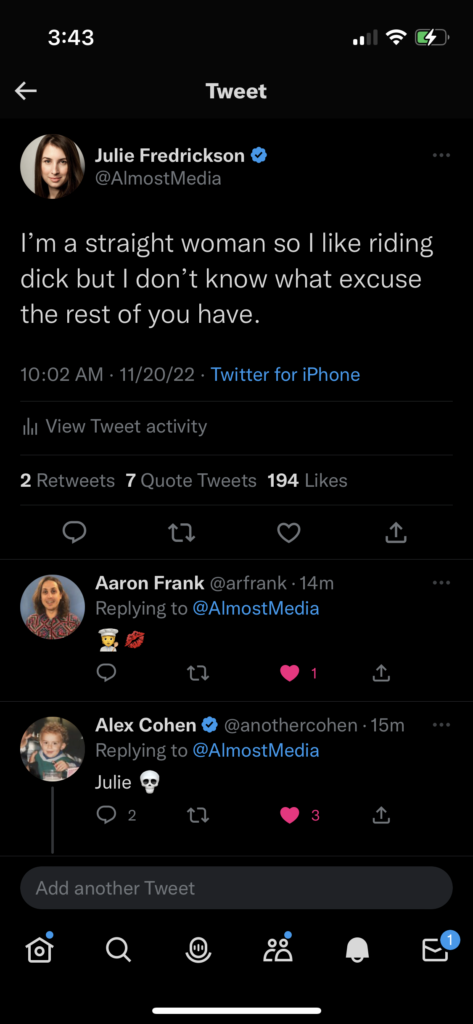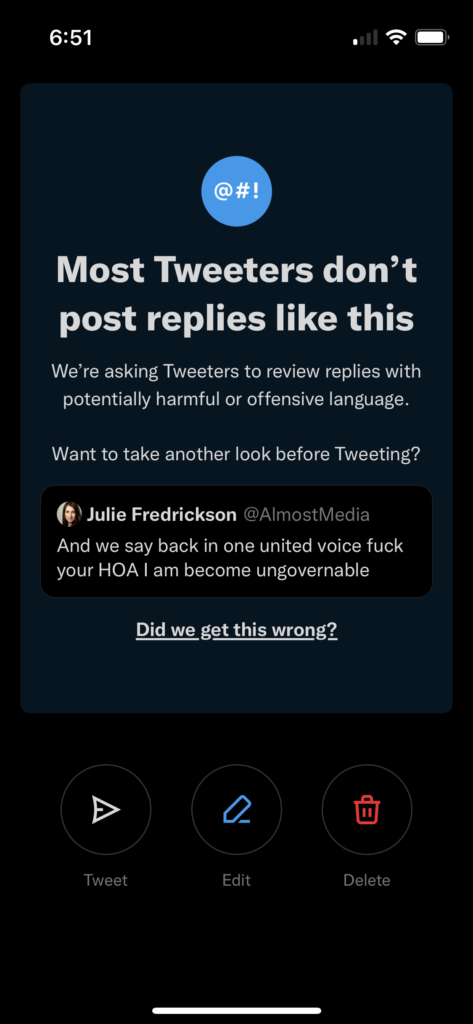I spent my entire day on Twitter. I’m not embarrassed by that to be clear. It felt like a vacation day. And even though I live in a majestic mountain paradise, I will spend my time off inside looking at my phone.
Yes it was absolutely gorgeous day in Montana. I marveled at the playful pinks of the sunrise over the mountains in our backyard while drinking coffee. And then I got back in bed and on my phone. And you better believe I fucking doomacrolled.
I just gorged myself on cheap attention calories. Gimme that dopamine drip. I did not even try to modulate my consumption pattern or prevent myself from going into fight or flight. It was goblin mode. I’m still not embarrassed.
But Twitter is a fucking mess. Watching people go tribal on Elon Musk is worse than people going tribal on the president somehow. Maybe because it feels more personal to me? Don’t get me wrong Trump felt existential, but Elon Musk is personal.
And it’s fucking embarrassing watching people react to him and his decision making. Here it is my industry’s moment in the spotlight. The technology industry showing itself as a keeper of common goods and open discourse right? Absolutely fucking not. We’ve shat the bed. Old management was incompetent sure. But new management is not an improvement.
I went into Twitter being purchased by Elon Musk modestly optimistic. He’s our guy right? He’s one of us. He likes startups and capital and technology. He reads the same science fiction as me. We’ve got friends in common. This is what it’s like to be a fan of the home team right?
Well fuck me sideways it has been going poorly. The site is pretty broken but I’m over that. It’s just the constant mayhem. Dave Kellog termed it adhocracy. Some random bullshit happens and the whole website has to lurch around conspiracy theories and rationalization.
It has frankly not been a fine showing for techno-libertarians. Not sure about showing up for a monarch executive now that you’ve seen your civil rights up for terms-of-service revisions by fiat huh? I’ve always thought the neo-monarchists to be dickriders but that’s a sentence that’s only comprehensible to the terminally online. And yes I should go outside and touch snow. I’ll do that now.

